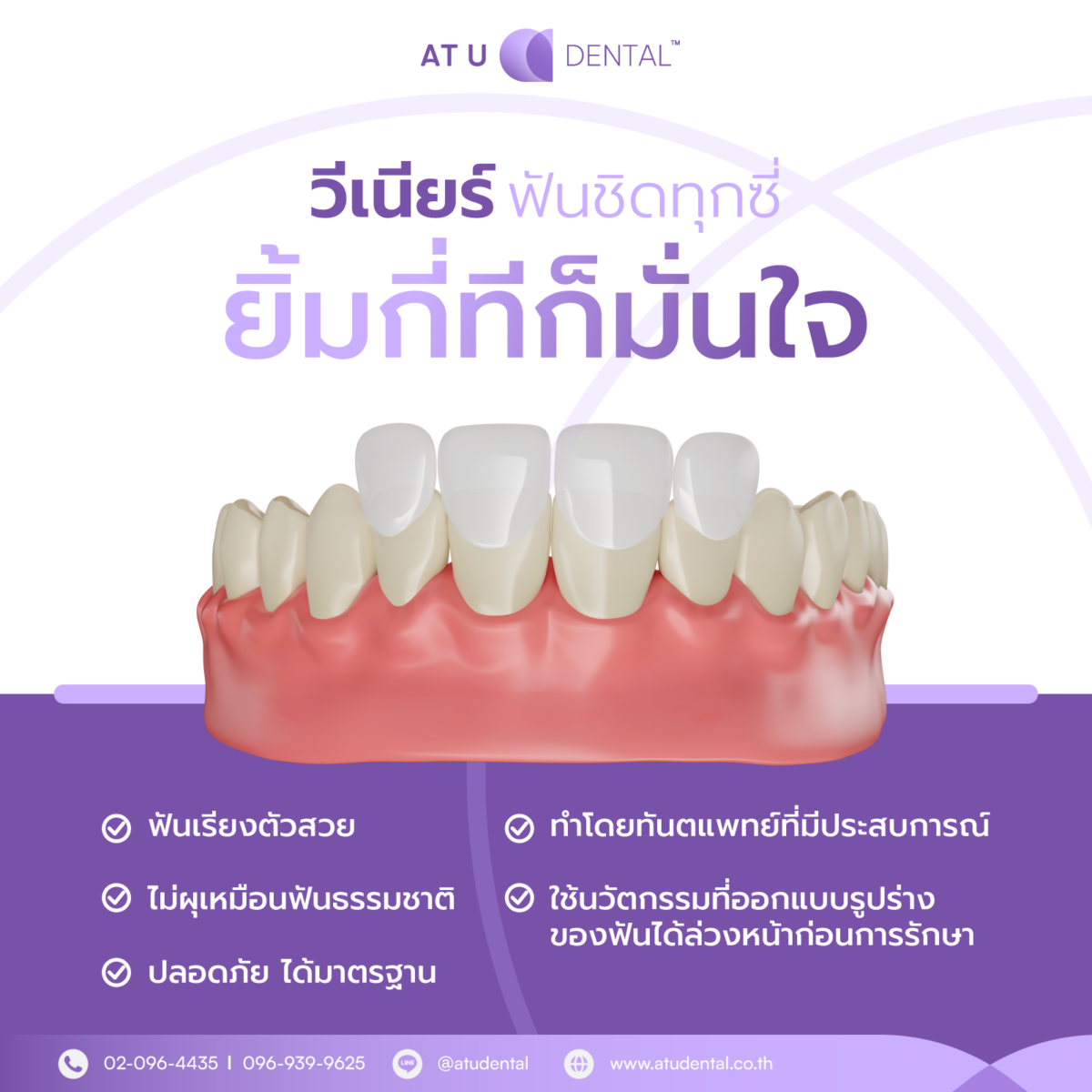Dental Clinic
คลินิคทันตกรรม
Aesthetic Dentistry: Dental Veneers

Veneers are one of the most popular aesthetic dental procedures. They enhance the appearance of teeth, making them look beautiful and flawless. Veneers are thin sheets made from high-quality materials like porcelain or composite, which are bonded to the surface of natural teeth. They can address dental issues such as uneven tooth color, chipped teeth, or gaps between teeth.
Types of Veneers
- Porcelain Veneers
- Key Features: Porcelain material is translucent, providing a natural tooth-like appearance.
- Durability: Resistant to discoloration and staining from food and beverages.
- Usage: Suitable for those seeking long-lasting results, with a lifespan of approximately 10-15 years.
- Composite Veneers
- Key Features: Composite material offers customizable aesthetics and can be adjusted quickly.
- Advantages The procedure is simpler, quicker, and more cost-effective than porcelain.
- Usage: Ideal for short-term fixes, with a lifespan of around 5–7 years.

Benefits of Veneers
- Improve the appearance of teeth, making them uniform, beautiful, and natural-looking.
- Conceal chips, cracks, and discoloration.
- Boost confidence in your smile.
- Made from durable materials for everyday use.
- A straightforward process with quick results.
Procedure for Veneers
- Consultation and Diagnosis
- The dentist will evaluate your oral condition and create a detailed treatment plan.
- Tooth Preparation
- For porcelain veneers, a small amount of enamel may need to be removed for proper fit.
- Composite veneers often require no enamel removal.
- Impression and Material Preparation
- Impressions are taken for porcelain veneers to be custom-made.
- Composite veneers can be shaped and applied directly.
- Veneer Bonding
- Special adhesive is used to bond the veneer, with adjustments to ensure it matches the shape of your teeth perfectly.
Frequently Asked Questions (FAQ)
Q: What is the difference between porcelain and composite veneers?
A: Porcelain veneers offer a natural look and higher durability, while composite veneers are quicker to apply and more affordable.
Q: Who are veneers suitable for?
A: Veneers are ideal for individuals looking to correct tooth discoloration, chips, or gaps, and for those seeking to enhance their smile.
Q: How long do veneers last?
A: Porcelain veneers typically last 10–15 years, while composite veneers last about 5–7 years, depending on care and maintenance.
Q: Does getting veneers hurt?
A: Veneer procedures are generally painless, as enamel removal is minimal, and local anesthesia is used if necessary.
Q: How should veneers be cared for?
A: Brush your teeth at least twice a day, use dental floss, and avoid hard foods that may damage the veneers.
Veneers are an effective option for enhancing the beauty of your teeth. Choosing the right type of veneer depends on your needs and budget. Proper care after the procedure is essential to extend the lifespan of your veneers. Consulting an experienced dentist will help ensure the best treatment plan for you.
References:
- The Dental Association of Thailand
- Guidelines on Aesthetic Dentistry by the Ministry of Public Health
- Aesthetic Dentistry: Principles and Techniques
- Expert Opinions in Aesthetic Dentistry
Dental Treatment


